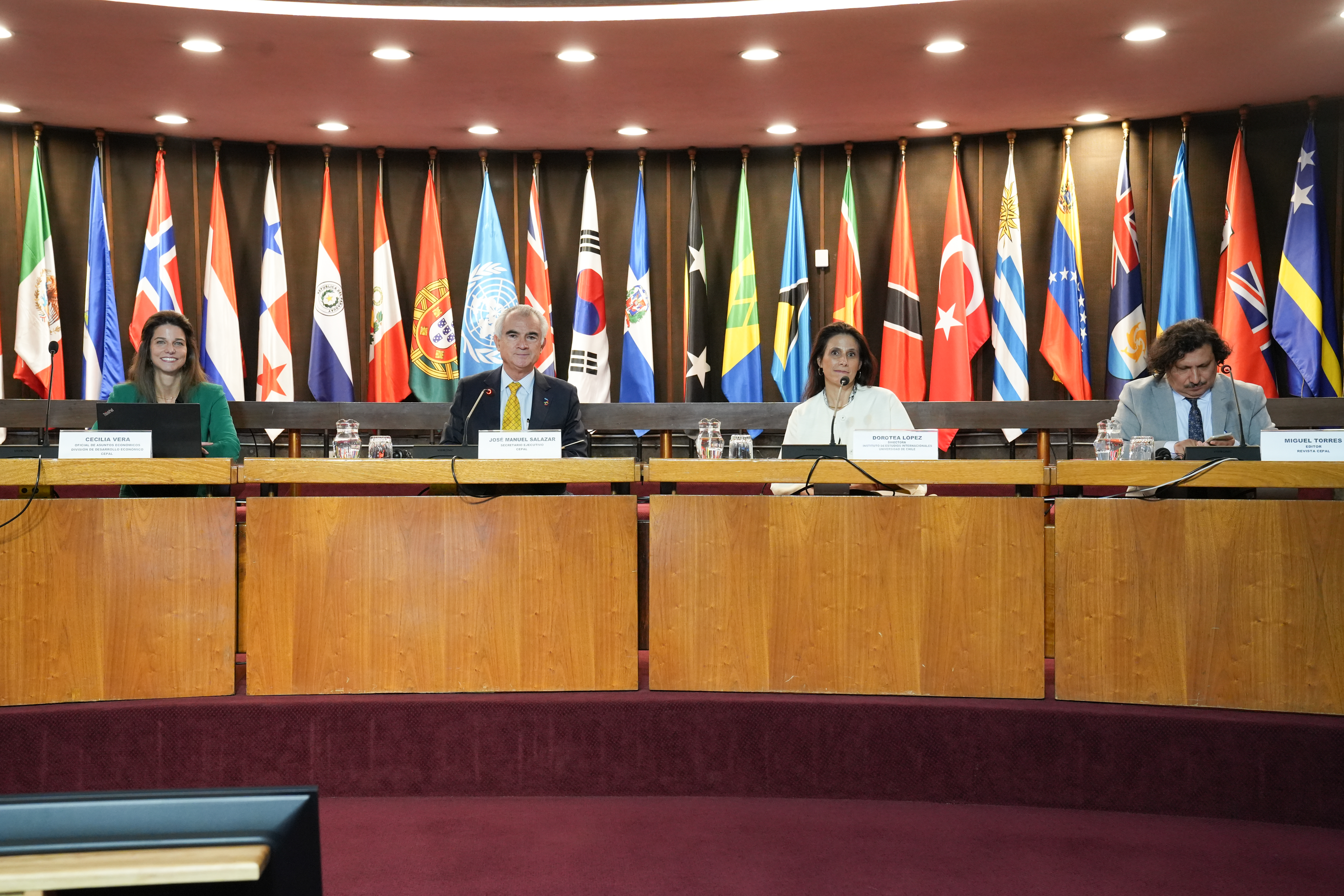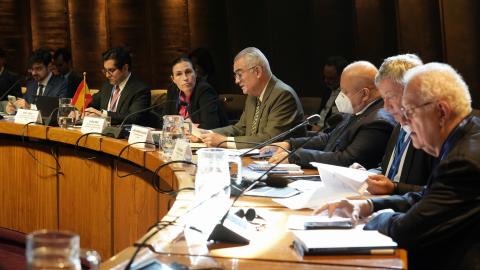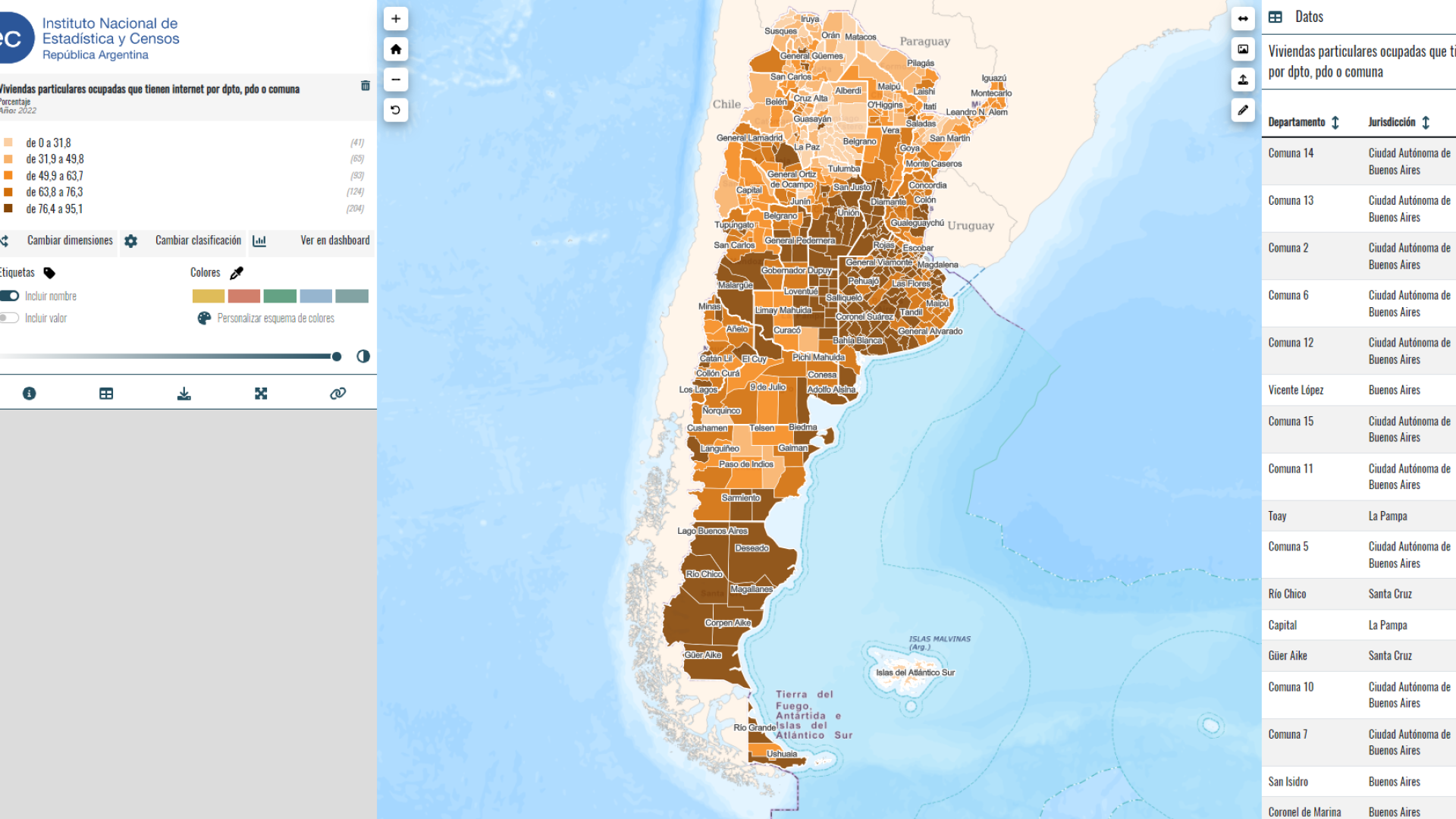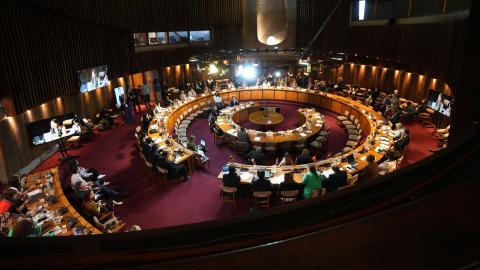Press Release
At a high-level seminar held virtually today, the Executive Secretary of the Economic Commission for Latin America and the Caribbean (ECLAC), José Manuel Salazar-Xirinachs, unveiled a special edition of the CEPAL Review, the Commission’s main academic publication, in which he presented his vision regarding the major transformations needed for the region to move towards a more productive, inclusive and sustainable development model.
This exclusive issue, entitled “75 Years of ECLAC: Towards a More Productive, Inclusive and Sustainable Development Model” (momentarily available only in Spanish), includes 11 articles by prominent specialists on the ten areas of structural gaps that the economic commission sees today as countries’ critical challenges for making progress on transforming development models.
In this edition of the Review, the first article – written by ECLAC’s Executive Secretary, José Manuel Salazar-Xirinachs, who is also the guest editor of this Special Issue – is titled “Rethinking, reimagining and transforming: The ‘whats’ and the ‘hows’ for moving towards a more productive, inclusive and sustainable development model.” It presents the vision of the Executive Secretary, who perceives a region caught in three development traps: a trap of low growth, one of high inequality and low social mobility, and another of low institutional and governance capacity.
Furthermore, with the aim of facilitating a comprehensive understanding of the region’s development challenges, the Executive Secretary identifies a catalogue of ten structural gaps that constitute ten priority areas for promoting major transformations in development models, meaning they are priority areas for action on public policy and collective efforts aimed at transformation.
These include: low, volatile, exclusionary and unsustainable economic growth, with low creation of formal employment; limited fiscal space and high financing costs; high inequality and low social mobility and cohesion; insufficient regional economic integration; significant gaps in social protection; intraregional migration flows that are growing in quantity and diversity; weak educational and vocational training systems; the digital divide; high gender inequality; and environmentally unsustainable development and climate change.
In addition to these catalogue of ten areas – which define a strategic assessment and directions regarding “what to do” to close these gaps – there is a critical, cross-cutting area involving the questions and challenges related to “how to do it.” In other words, how can these major transformations be managed? This leads to the issues of governance, institutional capacities for effective public policies, social dialogue and the political economy of reforms. With regard to institutional capacities, they can be divided into four main categories: technical, operational, policy and prospective capacities (TOPP capacities), which are part of the conceptual framework laid out regarding how to manage these necessary transformations.
The catalogue of ten gaps is the organizing principle of this special issue of the CEPAL Review. With this aim, a set of known researchers and specialists from ECLAC, along with academics and officials from other institutions, was invited to analyze these ten regional development gaps and ask themselves about the “hows.”
“This special issue of the CEPAL Review on the occasion of ECLAC’s 75th anniversary presents proposals with an emphasis on the future and that can help generate a new consensus on development, and on how to move towards a more productive, inclusive and sustainable future. It also sets forth a vision regarding the challenges of economic and social development in the region under the new conditions of globalization and the world economy, and calls for rethinking, reimagining and transforming development models and policies in the region,” José Manuel Salazar-Xirinachs underscored in his presentation.
In this context, the publication’s special edition includes articles by well-known experts on the role of productive development policies to escape the low-growth trap and induce a new strategy of growth that is not only more productive, but also more inclusive and sustainable; macroeconomic policies for investment and sustained and sustainable growth; the ongoing pursuit of integration in the region; contemporary challenges for ECLAC and Latin America and the Caribbean on the environment and sustainable development; the challenge of high inequality and low social mobility; gender equality and the care society; universal, comprehensive, sustainable and resilient social protection to eradicate poverty, reduce inequality and move towards inclusive social development; the importance of improving education for inclusive and sustainable social and economic development; and a development and rights perspective on international migration in the region.
In addition, this issue includes the text of the XVII Raúl Prebisch Lecture, delivered on October 30, 2023 by Rebeca Grynspan, Secretary-General of the United Nations Conference on Trade and Development (UNCTAD), and entitled “Globalization Disrupted: Prebisch, Trade Imbalances, and the Future of International Economics.”
After the presentation by ECLAC’s Executive Secretary, a roundtable discussion was held with the Editor of the CEPAL Review, Miguel Torres, serving as moderator and with three main commentators: Leonardo Lomelí, Rector of the National Autonomous University of Mexico (UNAM); Dorotea López Giral, Director of the International Studies Institute of the University of Chile; and Cecilia Vera, Economic Affairs Officer from ECLAC’s Economic Development Division.
Leonardo Lomelí indicated that this issue of the CEPAL Review is very well organized in terms of the challenges of the present and ways to address them in the future. “Higher, more inclusive and sustainable growth can help reduce inequality and increase social mobility and cohesion, but it must go hand in hand with the expansion of social protection and the welfare state,” he underlined.
“Why do we have low, volatile, exclusionary and unsustainable growth, with low creation of formal employment? It has to do with what ECLAC has studied over the last 75 years: the characteristics of our productive structure, this productive heterogeneity in the region that allows for sectors with high productivity, and good pay, to coexist with sectors with low productivity and low pay, but also the fact that the most dynamic sector is not enough to carry the economy as a whole and to create the formal jobs that are needed,” the UNAM Rector added.
Meanwhile, Dorotea López Giral indicated that ECLAC is undoubtedly the region’s most relevant institution of economic thought, “and analyzing its intellectual trajectory is largely equivalent to analyzing the region’s economic thought, which has been expressed throughout history in proximity to the public policies accompanying it.”
“The Executive Secretary is calling on all of us to strategically rethink the region. He indicates that this task is not only incumbent on governments, and here he alludes to us (universities) directly… Human capital formation is an essential pillar for consolidating development. That ‘how’ needs not only theoretical or practical dialogue, but rather is a commitment to a more equitable world that would provide a better quality of life to individuals,” stressed the Director of the International Studies Institute of the University of Chile.
Meanwhile, Cecilia Vera emphasized that, as ECLAC’s Executive Secretary indicated in his presentation, we are witnessing the emergence of a new order, with tectonic shifts in globalization. “Whether we call it geoeconomic fragmentation, or decentralized globalization, or poly-globalization, it seems clear that this is a new scenario that Latin America and the Caribbean must navigate successfully,” she stated.
“Very interesting changes are taking place, some of them are even a little different from what was originally predicted in 2018 and in 2022 with the start of the war (in Ukraine). In this sense, it is very important that an institution like ECLAC has put these issues on the table so early and is following them quite closely, since they are on its research agenda. We at ECLAC have to provide a conceptual framework in which countries’ development policies can be analyzed, and that is nothing short of what is being done,” indicated the Economic Affairs Officer from the institution’s Economic Development Division.



